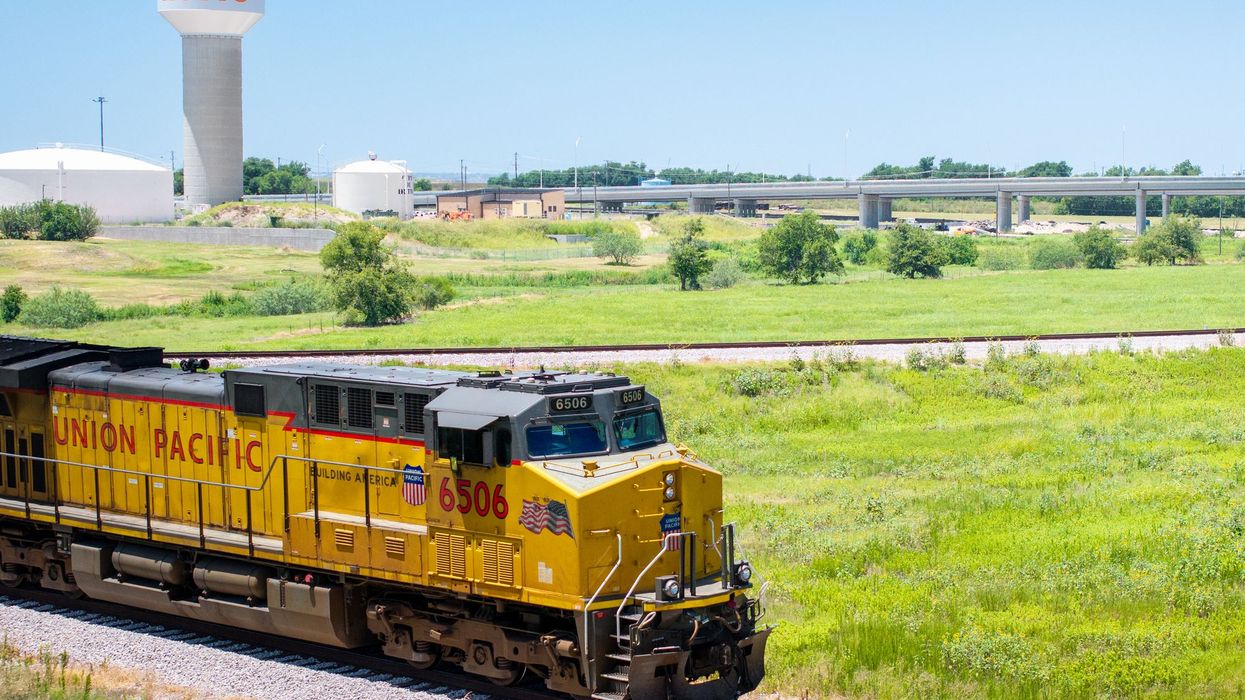Representatives of national conservation
organizations today released the annual "Green Budget" for FY 2010,
a document that details the federal agency funding the groups say is needed to
sustain clean air and water, lands, oceans and wildlife over the long term-an
increasingly urgent priority in an era of global warming. "Many of these
programs have been systematically marginalized and ignored over the past eight
years, and we must begin to restore adequate funding to them through the
regular appropriations process," said Bill Meadows, President of The Wilderness
Society, who hosted a news conference to unveil the Green Budget. The full
document, which was produced with input from more than 25 national conservation
groups, is available at www.wilderness.org
or www.saveourenvironment.org.
(Find an MP3 of today's teleconference at https://wilderness.org/content/green-budget-2010-teleconference)
Meadows noted that "funding
for individual land-management programs is low, and staff cuts have made it
increasingly difficult for the agencies to achieve their mission on the
ground. The new administration has a unique opportunity in the FY 2010
budget to provide jobs and restore economic vitality to many areas in need,
while also beginning to address the impacts of global warming. Our natural
resources provide economic growth in perpetuity, and investing in them provides
our country with long-term, lasting benefits."
That sentiment was echoed by
Mary Beth Beetham, Director of Legislative Affairs for Defenders of Wildlife. "America's
public lands and wildlife are not only anchors for healthy natural systems,
they are also important to our economy, helping to support at least 6.5 million
jobs across the nation," she noted. "The programs that support
these vital resources are chronically under-funded, but smart investments will
pay returns many times over the years to come. And the value of preserving our
natural heritage is immeasurable."
Appropriating adequate funds
for agency programs to thrive in the long-term is critical, even with the
recent passage of an economic recovery package that includes significant
funding for environmental programs, stressed Heather Taylor-Miesle, energy
consultant to the Natural Resources Defense Council (NRDC). "The economic recovery package made smart investments
that will repower America with
clean energy and create new jobs quickly. Congress can make good on this
down payment with a budget that keeps us on a path to a clean energy economy.
By providing the necessary funding for renewable energy and energy efficiency,
we can help end our dependence on oil and ensure that America has
the tools to meet the challenges of the 21st century."
Building
on that theme, Colin Peppard, Federal Transportation Program Manager for
Friends of the Earth, noted the importance of restoring funding for critical federal
transportation programs that help, rather than harm, the environment. "Over
the past several years, many innovative transportation programs that protect
our environment and reduce pollution have been underfunded, reducing their
effectiveness, and increasing the environmental impacts of
transportation," Peppard said. "Our transportation budget
recommendations ensure we are once again promoting clean air and water,
reducing oil use and global warming, and protecting wildlife and open
space."
One
of the agencies that has suffered severe funding cuts over the past eight years
is the Environmental Protection Agency, which saw a $1.8 billion decrease in inflation-adjusted funding
during the Bush Administration. The Green Budget makes a forceful case for
reversing this trend. "Nothing is more vital to the health and well-being
of our communities than clean water and clean air, said Peter Raabe, Policy
Director for Budget and Appropriations at American Rivers. "With global
warming presenting new challenges to our water, air and public health, we must
increase our investments to protect communities from pollution, boost quality
of life, and chart a new path to a green economy."
Long-term funding also is
critically important to the health of America's oceans and coasts,
said Roberta Elias, Senior Program Officer for Marine and Fisheries Policy at
the World
Wildlife Fund. "Our oceans and coasts are more
than a place where people visit. They generate a $117 billion in economic
revenues each year, provide us with food and recreation, and are home to fish
and marine wildlife. On top of that, oceans play a critical role in
regulating our climate. Unfortunately, ocean health, fisheries
sustainability, and marine biodiversity face a growing list of pressures
including poorly planned development, damaging fishing levels and practices, pollution
of all kinds, as well as global warming and ocean acidification. Putting
ocean conservation and management on hold is no longer an option.
It is time that we properly invest in the very marine ecosystems and
resources - at home and around the world - that we depend on to
provide basic ecological functions, to support economies and coastal
communities, and to feed a hungry planet."
#
# #
Find an MP3 of today's
teleconference at https://wilderness.org/content/green-budget-2010-teleconference



